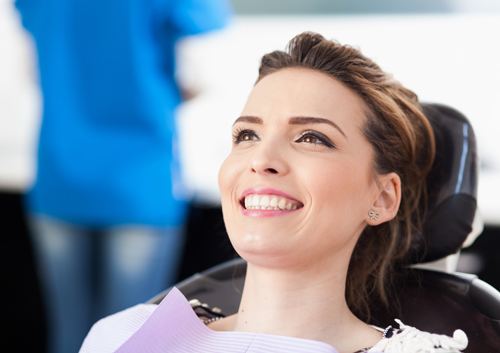Teeth Whitening and Your Smile
April 15th, 2020

The best type of whitening for your smile depends on what you are hoping to accomplish.
Whitening Toothpastes
This is certainly the easiest method of whitening, but will brushing alone produce your whitest smile? Probably not. Whitening toothpastes use chemicals and abrasives to remove some surface stains caused by foods, beverages and smoking. They can also be used to maintain the appearance of your teeth after a professional whitening. However, toothpaste alone cannot change the natural color of your teeth or penetrate the surface of the tooth to remove deeper stains. A whitening toothpaste usually takes several weeks to produce results. Be sure to choose a product with a seal of approval from a reputable dental association and carefully follow the instructions for use.
Whitening Strips and Gel Trays
Whitening gels can be applied at home with strips or tray kits. These peroxide-based gels are stronger than the formulas used in toothpaste.
Strips come coated with the whitening gel and work when pressed to your teeth for a specified amount of time. One difficulty here is making sure each tooth is completely covered by the strip so that even whitening takes place. Tray and gel whitening systems provide a mouthguard-like appliance that is filled with whitening gel and applied to your teeth, again for a specific period of time. Because one size does not fit all, stock trays can be ill fitting and lead to problems with gums and soft tissue. You can talk to our team about a custom-fitted appliance and whether gel whitening is your best option.
Some users find gel products cause tooth and gum sensitivity and even enamel damage. These over-the-counter gel products will not work on caps, veneers, crowns, or bridges, and there might be underlying conditions in your natural teeth that will make the use of these products ineffective. Please talk to us at your next visit to our Plaistow, New Hampshire office if you are interested in whitening at home, so we can advise you on how to achieve the best and safest outcome.
Office Treatment
Professional whitening makes use of a gel with a higher concentration of peroxide and should only be provided by Dr. Melissa Newman or a member of our team at our Plaistow, New Hampshire office. This process is generally faster, more effective and longer lasting. We take care first to examine your teeth for pre-existing conditions such as cavities and gum disease that could cause problems. We protect your gums when the gel is applied in office and monitor the procedure. We can assess the progress of the whitening and suggest further treatment if needed. Custom mouthpieces can also be an option if you would like to use a whitening gel at home. A personally molded tray will fit your teeth perfectly and allow a more precise application of the peroxide gel.
Some teeth are not good candidates for normal whitening procedures at home or in office. If you have dark stains caused by trauma, drugs such as tetracycline, discoloration due to root canals, or darker dental bonding, crowns, or other prosthetics, please talk to us about other possible solutions. We want to help you achieve your brightest possible smile.




